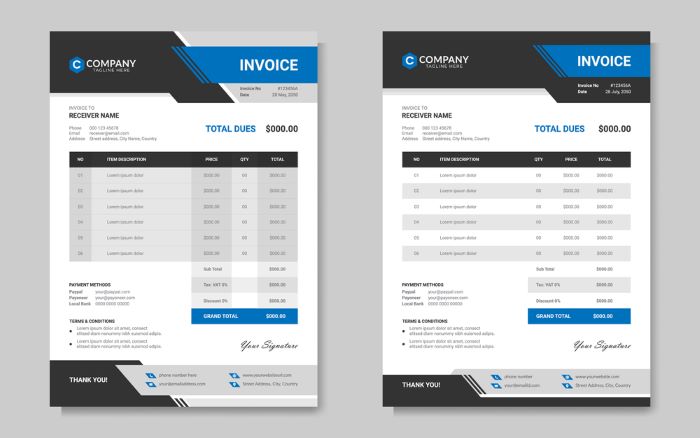QuickBooks Accounting Software: Is It Effective for Nigerian Businesses?

Nigerian businesses must modernize their accounting practices as the digital world expands rapidly. QuickBooks accounting software stands out as a preferred choice for businesses worldwide. Nigerian companies now actively assess their potential to enhance their operations. More businesses adopt this software to manage their finances quickly and effectively.
QuickBooks Online’s value to Nigerian businesses deserves a complete analysis. The software’s banking integration capabilities and multi-currency features make it particularly relevant. Nigerian companies can learn from ground examples that highlight both the benefits and limitations of QuickBooks implementation. Business owners will find practical answers about QuickBooks’ ability to meet their accounting requirements.
Overview of QuickBooks Accounting Software
QuickBooks accounting software has become one of the most accessible financial management solutions, and 88% of users have reported better business success. The software’s variants include QuickBooks Pro, Premier, Enterprise Solution, and QuickBooks Online, each tailored to different business scales and needs.
The platform delivers complete financial management capabilities through these key features:
- Up-to-the-minute income and expense tracking
- Automated bank and credit card transaction syncing
- Multi-currency support with exchange rate management
- VAT compliance and automated tax calculations
- Customizable financial reporting systems
Users can choose between desktop applications and cloud-based solutions for deployment. Local installation is necessary for desktop versions (Pro, Premier, and Enterprise), while QuickBooks Online runs entirely in the cloud. The Enterprise version supports up to 30 simultaneous users, making it an excellent choice for businesses of various sizes.
QuickBooks’ financial management capabilities go beyond simple accounting. Businesses can track sales, manage payroll, handle accounts payable, and generate over 200 different types of financial reports. QuickBooks Online users can access their financial data from any internet-capable device, which lets business owners monitor their finances remotely.
Benefits for Nigerian Businesses
QuickBooks accounting software gives Nigerian businesses doing international trade a resilient multi-currency system. Companies can handle different currencies and keep their main records in Naira. The system calculates exchange gains or losses automatically as rates change. This helps businesses that manage NGN and USD accounts, plus deals in other currencies like GBP.
The software has complete VAT compliance features that match Nigerian tax rules. Users can set up the local VAT rate of 7.5% and let the system calculate taxes for every transaction. Tax reports are generated automatically and the platform tracks withholding tax receivables, which cuts down tax compliance work by a lot.
QuickBooks adapts well to different industries with custom options:
- Manufacturing companies track raw materials and monitor production
- Property developers customize charts of accounts for project-based reporting
- NGOs use specialized modules to track donations and project expenses
Nigerian businesses benefit from the software’s economical licensing model. QuickBooks lets users pay a one-time license fee instead of subscriptions while keeping access to core features like invoicing, payment processing, and financial reporting. Users can import bank statements from Nigerian banks smoothly, with options to upload manually when direct bank feeds aren’t available.
Potential Limitations and Challenges
QuickBooks has many benefits, but users run into real challenges when they start using the software. Technical problems affect how smoothly things run, and users deal with these performance-related challenges:
- Software compatibility problems
- Network connectivity issues
- Data corruption risks
- Slow system performance
- Security vulnerabilities
New users face a steep learning curve that’s hard to overcome. Research shows it takes about four months to get good at using the software. People who don’t know accounting basics find it especially tough to grasp core concepts and terms, which makes it harder for them to use the platform well.
Nigerian businesses struggle with banking integration in specific ways. Many major Nigerian banks, including Guaranty Trust Bank, don’t support direct bank feed connections. Users can upload transactions manually as a workaround, but this creates more work and leaves room for mistakes.
Hardware-related issues can really mess with how well the system works. Problems like not having enough RAM or failing hard drives lead to crashes and lost data 7. The system needs regular maintenance and updated hardware to work properly. Data security is another big concern that needs strong protection through two-factor authentication and updated security software.
Case Studies of Nigerian Companies Using QuickBooks
New studies show QuickBooks has gained strong adoption in African markets, particularly among Nigerian businesses. Research in Kenya, a similar market, reveals that 65% of SMEs knew about QuickBooks, and most of them successfully used the software.
Nigerian companies of all types report success with QuickBooks:
- Manufacturing firms employ the software to track raw materials and monitor production
- Property developers use customized charts of accounts
- NGOs work with specialized modules to manage donors and track project expenses
TNB Global Outsource’s switch from desktop to QuickBooks Online serves as a compelling example. The company streamlined processes by eliminating manual data entry and cut costs through automation. Their team now monitors finances immediately and collaborates better with clients through mobile features.
QuickBooks proves especially valuable to Nigerian businesses involved in international trade through its multi-currency features. Companies manage transactions smoothly across 145 currencies while calculating exchange rates accurately. The software’s support for multiple price levels and customer-specific pricing helps businesses thrive in Nigeria’s ever-changing market conditions.
Conclusion
QuickBooks accounting software offers Nigerian businesses major advantages with its complete financial management tools, multi-currency support, and VAT compliance features. Companies of all sizes have success stories that show their real-world value, especially when they deal with international trade and automated financial reporting. Though some businesses face technical challenges and banking integration limits, those who spend time on proper setup and team training see remarkable improvements and reduced costs.
Nigerian companies should think over these benefits and challenges before adopting QuickBooks. The software has proven itself in markets like Nigeria and offers customization options for different industries. This makes it a solid choice for businesses that want to update their accounting methods. Companies that tackle technical needs and learning curves early see clear improvements in how they manage finances. QuickBooks proves to be a practical tool for Nigerian businesses ready to accept new ideas in their digital journey.



